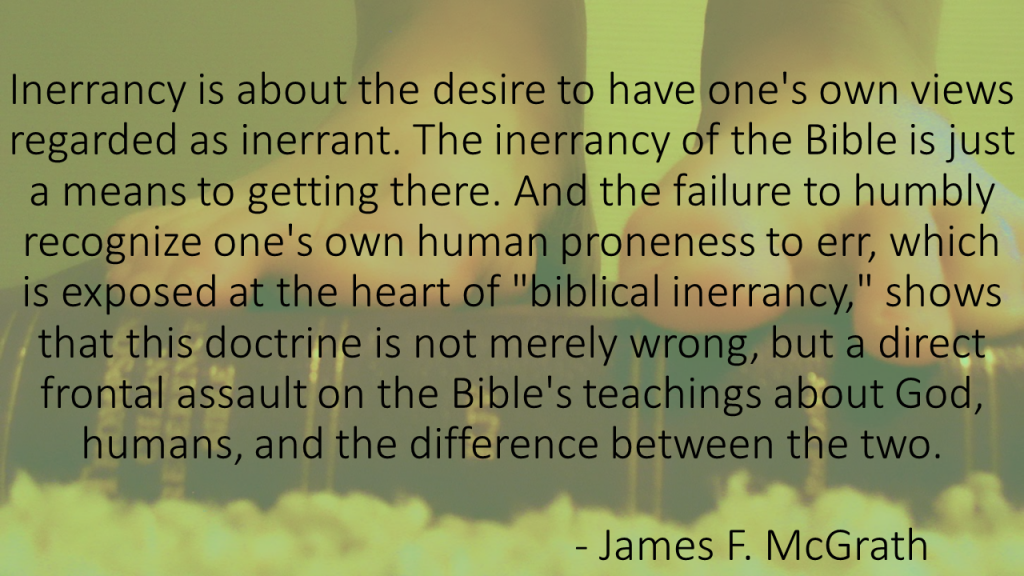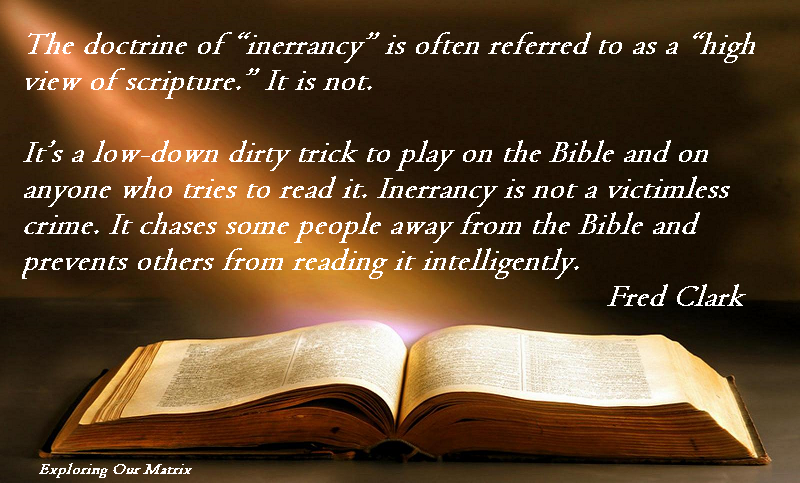As I emphasized in recent posts, the reason that I abandoned biblical inerrantism is that it is not merely unbiblical, but anti-biblical. It silences all but at most one of the diverse voices within the Bible, and denies or explains away rather than accepts the evidence that the Bible itself provides for its own human fallibility. I have said more about that in quite a number of other posts over the years. And so, having spent so much time talking about this topic lately, I think I should share reminders of some things I’ve written about biblical inerrantism in the past.
One objection to alternatives to biblical inerrancy is that one is simply left with a slippery slope – and so please do see my previous blog posts about slippery slopes! I really do think that the scare tactic – be as conservative as possible or you will end up at the other extreme – is at best dishonest and at worst a self-fulfilling prophecy.
On the other hand, I made a meme about the frequent lack of effect of biblical inerrancy:

I also wrote a related blog post about the lack of effect of inerrancy (as well as some positive implications of not adhering to it). I blogged about inerrancy as an attack on the Bible and its use to defend sin.

I shared things that Fred Clark wrote about inerrancy’s broken promise and quoted Theodore Vial. I explained why sooner or later you have to choose between the Bible and inerrancy, and shared other quotes on the topic. I discussed whether inerrancy can be a “biblical doctrine” and also how biblical contradictions relate to inerrancy. I turned Fred Clark’s words about inerrancy as a “dirty trick to play on the Bible” into a meme:

See also my discussion of a book by G. K. Beale about inerrancy. And here’s one more meme with a quote from something I said about inerrancy:














